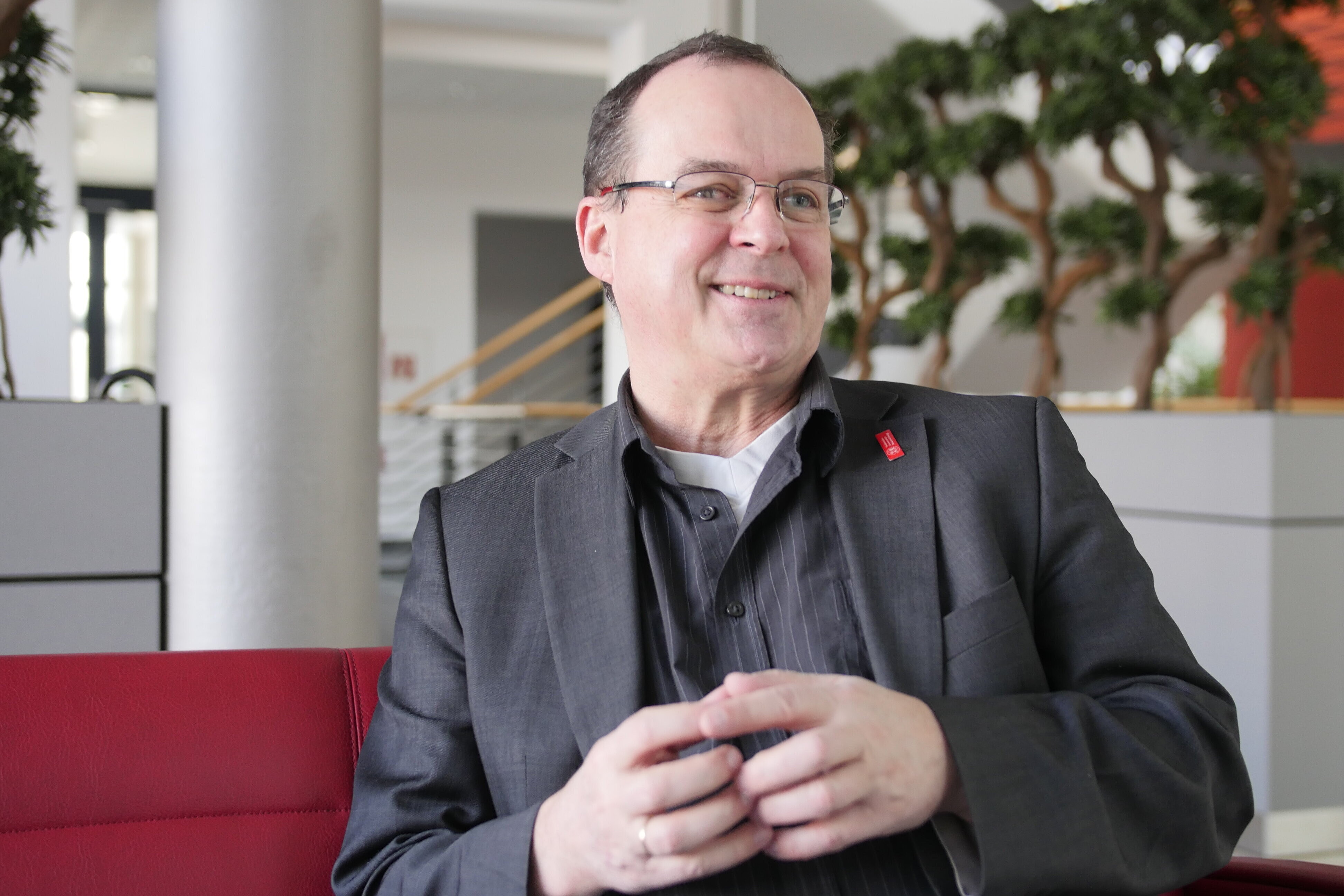Professor Jahn, when you accepted an appointment at the Institute for Microbiology in 2000, the HZI was still named German Research Centre for Biotechnology (Gesellschaft für Biotechnologische Forschung – GBF). What was the relationship between the TU Braunschweig and the GBF like at the time?
When I moved to the Biozentrum, on each floor there were signs reading "GBF" pointing to research groups that had been working there originally. It was the vision of the Biozentrum to have TU and GBF research groups work collaboratively on important topics in biotechnology. But this was basically obsolete by the year 2000 and the last GBF groups moved out soon thereafter. The relationship of some colleagues from the TU to the GBF was reduced to some kind of friendly ignoring. However, there was an ongoing collaboration between various engineers from the TU Braunschweig and the bio-process engineering at the GBF. They initiated the Collaborative Research Centre titled "From Gene to Product" in 2001, in which we then conducted successful joint research for the next twelve years.
Rudi Balling arrived in Braunschweig almost at the same time as you to serve as the executive director of the GBF and there was a major change in topics when the GBF became the HZI. How did the TU Braunschweig respond to these changes?
We were undergoing some major changes ourselves at the time. The Bologna process, i.e. the switch to the bachelor and master system, forced us to revamp all our teaching. And the universities were exposed to increasing competitive pressure. We needed a clear profile in order to generate national and international recognition. Therefore, we initiated a profile development process, in which the new HZI focus was taken into consideration appropriately.
And the "Infections and Drugs" focus was defined in this process?
Correctly. We in the life sciences decided jointly that "Infections and Drugs" is our strategically relevant topic – this was no coincidence! Even before the major strategy process, we embarked on this pathway by appointing professors for infection microbiology, biotechnology of recombinant antibodies and drug research. Meanwhile, the TU and the HZI are jointly operating proteomics and metabolomics units as important OMICS technologies.
Why has the TU moved so much towards the focus of the HZI?
Compared to other universities, our biology department is relatively small. If we want to be recognised internationally, we need to do this in a partnership with the HZI. Not to forget the DSMZ, another important partner of our institution. We need to define joint topics, in which we can complement each other perfectly. We see these topics mainly in the basic research on infections and drugs, since there can be no translation of research into applications without basic research.
Systems biology is another common topic of the TU and HZI. How exactly does the collaboration within BRICS work?
The systems biology centre BRICS is the "concrete" legacy of Rudi Balling at the HZI and the TU. It is the institutional basis of our common research and ensures our continuing collaboration. This can work only based on reciprocity: HZI research groups work in the BRICS building on the TU campus and TU research groups work on the Science Campus Braunschweig-Süd. But BRICS is more than just the building. It now encompasses 24 research groups of the TU, HZI, DSMZ and TWINCORE in Hannover. BRICS is therefore a platform for coordinated research on joint projects such as the Clostridium difficile pathogen and the metabolism of the immune system. Further, it is a technology platform that covers the OMICS technologies required by all partners in a complementary and integrated manner.
The co-appointment of senior scientists of the HZI is another link between the HZI and the TU. How do you see this?
The co-appointments allow us to integrate the HZI colleagues into the teaching and research structures of the TU. This comes with certain rights, such as the right to bear the title of Professor and to hold doctoral examinations. In return, they have to teach a small number of courses at the TU. It is obviously attractive to our students to be able to incorporate the expertise of the HZI into their studies. And the HZI gets well trained trainees in return. Again, the principle of reciprocity. It is very important to us that this allows us to ensure a very high level of quality in the teaching of our institutions.
In addition, the TU is involved in the Science Campus Braunschweig-Süd. What is the significance of this campus beyond the fact that it houses the TU research groups?
The Science Campus provides the integrated infrastructure required for our common research and development. It brings people and topics together that belong together. One typical example is our joint proteomics unit. In addition to the HZI and the DSMZ, the Fraunhofer ITEM located there is another important partner of the TU. I think we need more companies that translate our findings into products. There is still sufficient space available.
And finally a look to the future: What do you think is important for the success of this partnership to continue?
Any sustainable partnership needs to be based on a deliberate culture of giving and taking. In order to produce well-trained infection biologists and natural substance researchers, the TU needs the deliberate and substantial contribution of the co-appointees of the HZI to the teaching of the TU. Reliability is of the essence here, especially when times are difficult. In research, it is important to fully explore the extensive overall potential of the BRICS, the Pharmaverfahrenstechnikzentrum PVZ (Pharmaceutical Process Engineering Centre) and the HZI including HIPS and HIRI – there is a new level of collaboration emerging.

